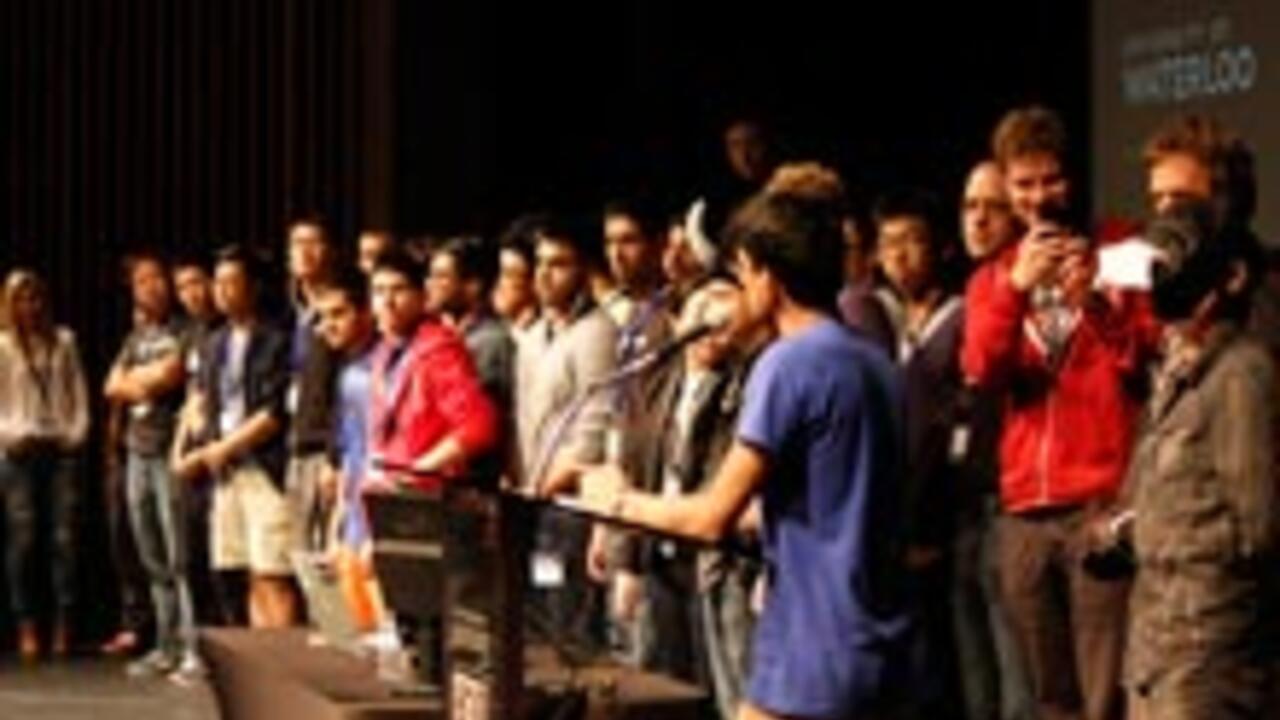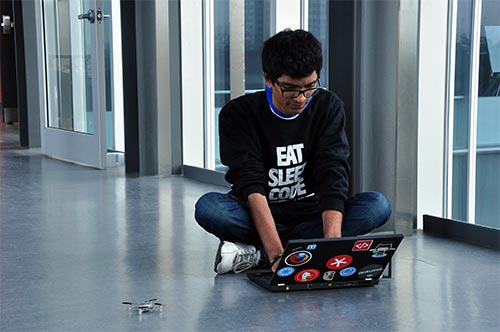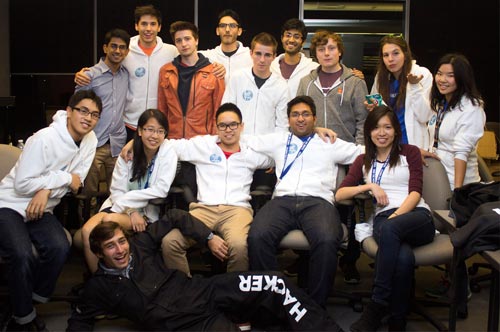
Hack the North: Canada’s largest international hackathon
1,000 students from around the world are at the University of Waterloo this weekend to build mobile apps, web platforms, robots and more

1,000 students from around the world are at the University of Waterloo this weekend to build mobile apps, web platforms, robots and more
By Sean Young Hack the NorthStudents from around the world are gathering at the University of Waterloo this weekend for the second round of Hack the North - Canada’s largest international hackathaon.

The undergraduate participants are from universities in the US and Germany and as far away as India and China. They’ll form teams and create technology solutions to a problem in just 36 hours with mentors from some of the biggest companies in tech such as Google, Facebook and Microsoft.
This year, organizers have partnered with Y Combinator, one of the most prestigious technology incubators in the world. “I was so impressed last year,” said Sam Altman, President of Y Combinator. “(Hack the North) was certainly the best tech event I went to in all of 2014.”
Organized by students, in partnership with Waterloo Engineering, Hack the North was created with the goal of inspiring young people to learn new skills, solve problems and build things that matter.

Y Combinator will present a panel called “Do Things That Don’t Scale” where founders of Teespring, Bannerman, and the Detroit Water Project share their experiences. They will also be holding YC Office Hours, where partners sit down with teams to answer questions and provide advice.
A platform for secure patient genome browsing called Guava, and a nocturnal epilepsy tracker called Pebilepsy are just two of the tech solutions created at last year’s Hack the North. Pebilepsy has gone on to become a startup company.
“You just say, ‘Wow, look at what these university undergraduates are making.’ It’s pretty powerful,” says Kevin Lau, co-founder of Hack the North and a third-year systems design engineering student at the University fo Waterloo.
The hackers are coming from more than 100 schools, including Stanford University, University of California, Berkeley, University of Toronto and McGill University as well as schools in Australia, India, China, United Kingdom, Germany, Algeria, and Argentina.

Read more
Here are the people and events behind some of this year’s most compelling Waterloo stories

Read more
Meet five exceptional Waterloo graduate students crossing the convocation stage as Class of 2025 valedictorians

Read more
Meet the 14 exceptional students representing Waterloo’s newest grads
The University of Waterloo acknowledges that much of our work takes place on the traditional territory of the Neutral, Anishinaabeg, and Haudenosaunee peoples. Our main campus is situated on the Haldimand Tract, the land granted to the Six Nations that includes six miles on each side of the Grand River. Our active work toward reconciliation takes place across our campuses through research, learning, teaching, and community building, and is co-ordinated within the Office of Indigenous Relations.